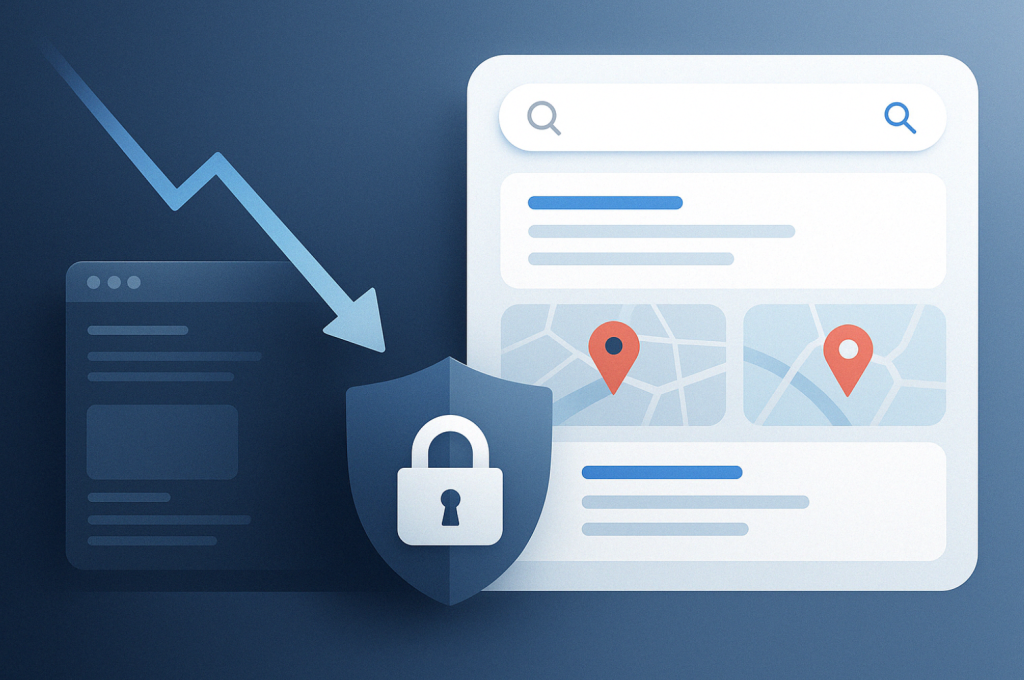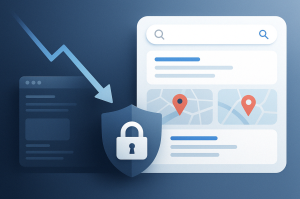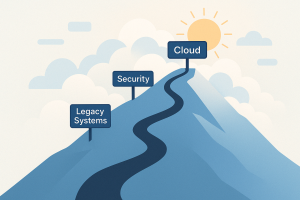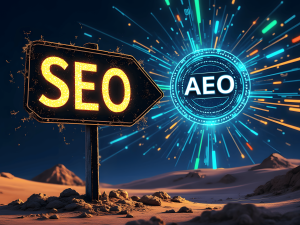We invest time, energy, and budget into our websites—design, loading speed, SEO. But the future says: website visits will decline—and that’s not a bug, it’s a feature.
Thanks to deep Google integrations, your website is increasingly becoming a data source, no longer the place users absolutely have to go.
- Your opening hours? Already in Google Maps.
- Directions? Just one click in the search results.
- Your services? Visible via structured data.
- Reviews? Embedded directly.
And if you’ve done everything right—kept your Google Business profile up to date, integrated structured data, collected reviews—users often no longer need to visit your site at all.
The “Zero Click” Era
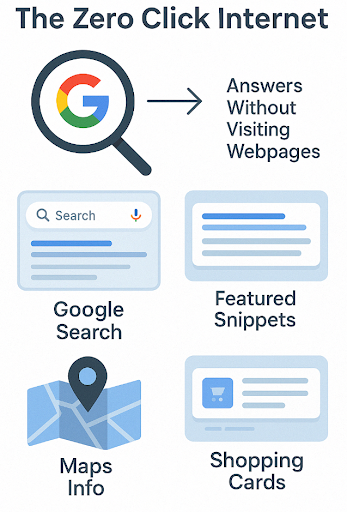
More and more searches end before the user ever visits a website. Instead, Google & Co. provide direct answers:
- Featured Snippets
- People Also Ask
- Google Maps Cards
- Shopping Previews
The goal is achieved—the search intent fulfilled—without the user ever having to click.
You Did Everything Right — And That’s Why Nobody Clicks
If you’ve implemented everything well:
- structured data
- schema markup for products & FAQs
- Google My Business
- shopping feeds
… then you’re perfectly integrated—but you’re getting less traffic.
And that’s not a mistake. That’s the new standard.
Shift Your Mindset: From Traffic to Action
Fewer clicks does not mean less success.
Think differently: metrics like “website visits” are losing their relevance. What really matters is:
- Was a call made through your Google profile?
- Did someone book an appointment directly in the search results?
- Did someone click “Directions” in Google Maps?
- Did a purchase happen via Google Shopping?
These are the new micro-conversions. And they are often more valuable than a mere website visit.
What You Should Optimize Instead
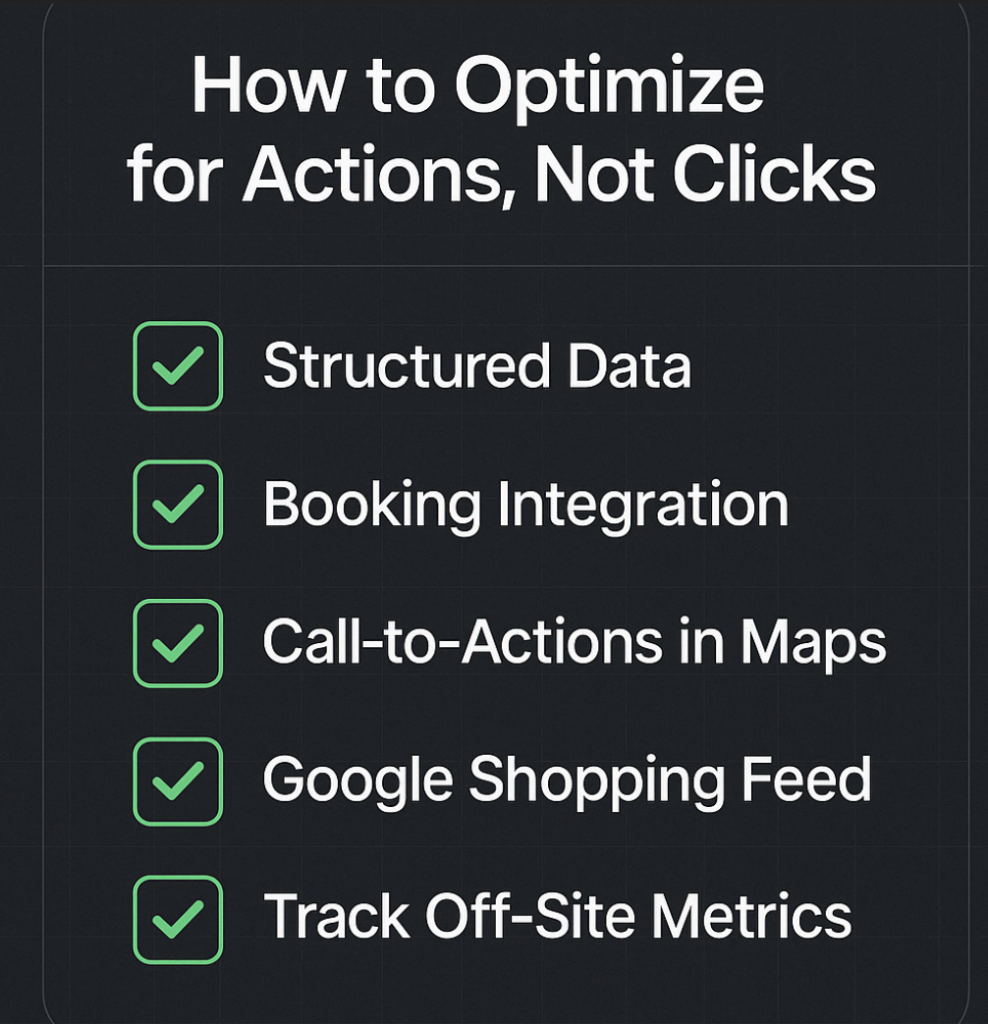
Focus: user actions instead of page visits.
Here’s what you should concentrate on now:
- Structured Data
→ So Google understands what your site is about. - Google Business Integration
→ For direct interaction in search results (call, directions, opening hours). - Google Shopping Feed
→ So your products are visible and purchasable directly in the search results. - Track Off-Site Conversions
→ Use UTM parameters, call tracking, booking analytics.
Content Beyond Google
→ Create content Google cannot fully represent: in-depth analyses, storytelling, gated content.
Conclusion: The Website Isn’t Dying – It’s Changing Its Role
Your website won’t become less important in the future—it will become differently important.
It is no longer primarily a destination, but a source. No longer the first point of contact, but the back-end of the user experience, which often plays out entirely on Google.
Don’t just measure clicks—measure impact.
Don’t just optimize for visibility—optimize for interaction.
Don’t tear down your website—rebuild it for its new role.
